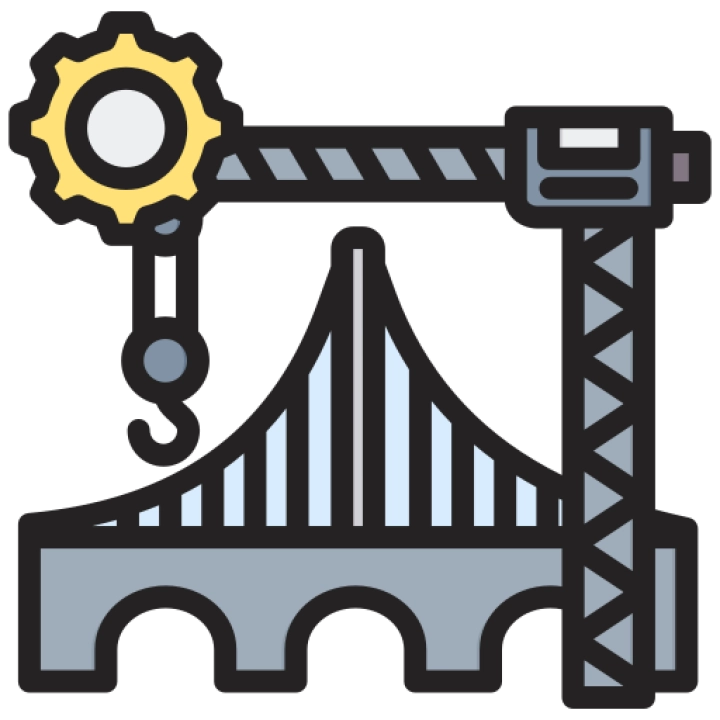Faculty: Graduate Program Institute
This specialization focuses on the design, analysis, and construction of structures that withstand various forces and environmental conditions. Students explore key areas such as structural mechanics, materials science, seismic engineering, and construction technology. The program emphasizes problem-solving, innovation, and safety in the design of buildings, bridges, and other infrastructure. Graduates are prepared for careers in civil engineering, construction management, and infrastructure development.
Learning Objectives:
- Understand the principles of structural analysis and mechanics.
- Develop skills in designing safe and efficient structures using modern engineering techniques.
- Learn techniques for evaluating and selecting construction materials.
- Explore methods for assessing and mitigating structural failures.
- Study the impact of seismic and environmental forces on structures.
- Analyze case studies of historical and modern engineering projects.
Main Curriculum:
- Introduction to Structural Engineering - An overview of principles of structural engineering and its applications.
- Structural Analysis - Techniques for analyzing forces, stresses, and load distribution in structures.
- Materials in Structural Engineering - Properties and applications of concrete, steel, timber, and composites.
- Reinforced Concrete and Steel Structures - Design and analysis of reinforced concrete and steel structures.
- Structural Dynamics and Earthquake Engineering - Study of seismic loads, vibration analysis, and structural flexibility.
- Foundation and Geotechnical Engineering - Principles of soil mechanics, foundation design, and ground stability.
- Bridge and Infrastructure Design - Structural requirements for bridges, towers, and large-scale infrastructure.
- Construction Methods and Project Management - Techniques in construction project management, safety, and sustainability.
- Failure Analysis and Modifications - Case studies on structural failures and methods to enhance existing structures.
- Capstone Project in Structural Engineering - A practical project involving the design, modeling, and analysis of a structural system.
Assessment Methods:
- Structural design projects and modeling assignments.
- Laboratory tests on construction materials.
- Case studies on engineering failures and solutions.
- Internships with engineering firms, construction companies, or government bodies.
Recommended Textbooks:
- "Structural Analysis" by R.C. Hibbeler.
- "Design of Concrete Structures" by Arthur H. Nilson.
- "Steel Structures: Design and Behavior" by Charles G. Salmon.
Prerequisites:
A strong foundation in mathematics and physics is recommended. Suitable for students in civil engineering or related fields.
Duration of the Specialization:
Typically 3 to 4 years, including coursework, laboratory work, and internships.
Target Audience:
Aspiring structural engineers, civil engineers, and construction professionals seeking expertise in designing safe, efficient, and sustainable structures. This specialization equips students with the technical, analytical, and practical skills necessary to build the infrastructure of the future while ensuring its safety and integrity.

